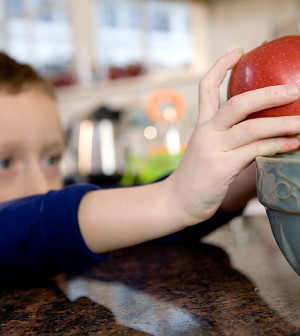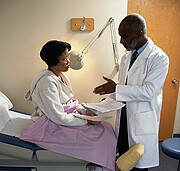- Are You Making This Expensive Thermostat Error This Winter?
- Recognizing the Signs of Hypothyroidism
- 10 Strategies to Overcome Insomnia
- Could Artificial Sweeteners Be Aging the Brain Faster?
- Techniques for Soothing Your Nervous System
- Does the Water in Your House Smell Funny? Here’s Why
- Can a Daily Dose of Apple Cider Vinegar Actually Aid Weight Loss?
- 6 Health Beverages That Can Actually Spike Your Blood Sugar
- Treatment Options for Social Anxiety Disorder
- Understanding the Connection Between Anxiety and Depression
Serious Health Issues May Await Survivors of Childhood Cancer


Adult survivors of childhood cancer are more likely to develop serious health problems than their siblings, a new study finds.
Researchers looked at data from thousands of American adults who were age 20 or younger when they were diagnosed with cancer between 1970 and 1986. As the cancer survivors aged, the health gap between them and their siblings grew larger.
Between ages 20 and 34, childhood cancer survivors were 3.8 times more likely than their siblings of the same age range to have severe, disabling or deadly health problems. At 35 and older, the survivors had a five times higher risk than their siblings, the study authors found.
By age 50, more than half of the survivors had suffered a life-changing health issue, compared to less than 20 percent of their same-aged siblings, the findings showed. Also by that age, more than one in five of the survivors had at least two serious health conditions, and 10 percent had three or more.
The health problems included new cancers and diseases of the heart, lungs, kidneys, liver and hormones, according to the study, published in the March 17 issue of the Journal of Clinical Oncology.
“Survivors remain at risk for serious health problems into their 40s and 50s, decades after they have completed treatment for childhood cancer. In fact, for survivors, the risk of illness and death increases significantly beyond the age of 35,” said Dr. Gregory Armstrong, an associate member of the department of epidemiology and cancer control at St. Jude Children’s Research Hospital in Memphis, Tenn.
“Their siblings don’t share these same risks,” said Armstrong, the study’s first and corresponding author, in a hospital news release.
He said the findings show the importance of lifelong follow-up care for childhood cancer survivors. Depending on the treatment they received for their childhood cancer and other risk factors, follow-up care may include receiving cancer screenings and other health checks at a younger age than people in the general population.
More information
The American Society of Clinical Oncology explains the late effects of childhood cancer.
Source: HealthDay
Copyright © 2026 HealthDay. All rights reserved.










